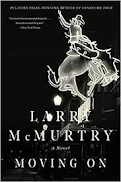Jacqueline Winspear, Maisie Dobbs, Birds of a Feather, Pardonable Lies
These were recommended on someone's blog, I forget whose. Thank you, whoever you were! These are sort-of mystery stories, set in England and France from 1929 and into the 30s, though there are also flashbacks to just before and during WWI. Maisie is the daughter of a working-class family who has the luck to encounter wealthy patrons who organize her education, securing her a place at Oxford, just as WWI breaks out. A year or so into the war, Maisie leaves school and serves as a nurse, eventually as a battlefield nurse. Much of the series (so far, I'm only on book 3) is about the wounds and trauma of the war, not just on Maisie, but on every character in the series.Maisie is a bit like Sherlock Holmes, in that she sees and understands what most people don't; but very unlike him in that some of her ability is psychic in nature -- she picks up on ghostly emanations, for instance, and can feel, somehow, what other people are feeling and thinking.
Very readable. A little more woo than I actually like in my mysteries, but not so much that I couldn't get past it.
Larry McMurtry, Moving On
This is a re-read. Moving On is one of top ten favorite books, though I can't really say why. It's a thousand-page doorstopper which follows a character, Patsy Carpenter, and her friends around the country for a couple of years of their lives in the mid-1960s. The focus is mainly on marriages, or at least on male-female heterosexual relationships, and there's no real plot. I my mean, things happen -- people have kids, have sex, die, go to rodeos, eat sandwiches -- but there's no sense that McMurtry has any sort of driving theme or plot strand he's following.And yet I love this book. McMurtry captures life among the middle-class and wealthy in a certain era of American life with pristine clarity. It's set mostly in Houston, but in the first 300 pages or so of the book Patsy and her husband travel through the High Plains and the Midwest, going to rodeos. I love this section of the book: the American road-trip, roadside motels, gas stations, great vistas, small towns, all before the internet, where if you wanted something to read you had to find books at a drugstore, on the magazine rack. I remember that world.
In his introduction to the paperback version I have now, McMurtry writes an essay about how, after he published this book, all the women he knew scolded him because Patsy cries so much, and on my re-read I have to say I agree. Patsy cries pretty much non-stop through the entire book. McMurtry says, sounding bewildered, that all the women he knew did cry pretty much non-stop. But I think he's being disingenuous -- even in this book, not all of the women spend all their time crying. Just Patsy.
There are a lot of women in the book. In fact, I think this book is more about women than it is about marriages and m/f relationships -- although all the women are in relationships.
Anyway, if you're looking for a long, wonderfully written book in which nothing much happens, including nothing really bad, this one is for you.
John Barnes, Mother of Storms
This is another re-read: a science fiction novel about what happens when the methane under the polar ice caps melts (or in this case, is melted). Rapid warming over the oceans of the world, in this book, followed by massive and deadly hurricanes. Written in 1998, when global warming was not yet on everyone's radar, this book gets many things right -- the disaster that global warming will be; the pervasiveness of the internet; the damage channels like Fox News can do to the world politics. It gets other things wrong, and it has an extremely squicky subplot involving a politician who has children raped and murdered for his own pleasure; there's also a bit of woo here, involving the internet (still in its infancy at the time). I hadn't read this one since it came out, and the re-read was interesting. Only for hardcore SF fans, though.



No comments:
Post a Comment